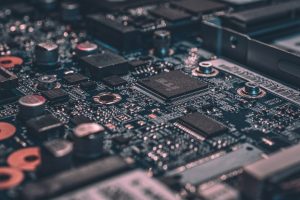As organizations strive to optimize their talent acquisition processes and streamline recruitment workflows, the role of artificial intelligence (AI) in enhancing HR productivity in hiring has become increasingly prominent. Imagine a recruitment process where manual tasks are minimized, candidate evaluations are unbiased, and hiring decisions are data-driven. This blog post delves into the transformative impact of AI technology on modern recruitment practices, offering insights on how organizations can leverage AI tools to revolutionize their approach to hiring and talent acquisition. Let’s explore how AI is reshaping the landscape of HR productivity in the hiring process.
Leveraging AI for Resume Screening
In the realm of HR productivity in hiring, AI technology plays a crucial role in streamlining the resume screening process. Here’s how companies can leverage AI to enhance efficiency and effectiveness:
Automated Analysis of Resumes
AI algorithms are designed to analyze resumes rapidly and accurately, saving HR professionals significant time and effort. By using AI-powered tools, companies can swiftly sift through a large volume of resumes to identify top candidates based on predetermined criteria.
Elimination of Bias
AI technology helps in minimizing human bias during resume screening. By focusing solely on qualifications and skills relevant to the job description, AI ensures a fair and impartial evaluation of all applicants. This not only enhances the quality of candidate selection but also contributes to a more diverse and inclusive hiring process.
Improved Matching of Skills
AI tools excel in matching candidate skills with job requirements. By utilizing machine learning algorithms, companies can identify the most qualified candidates whose skill sets align perfectly with the job specifications. This precision in matching leads to more successful hires and reduced turnover rates.
Increased Efficiency and Cost Savings
By automating the resume screening process with AI, HR departments can significantly increase their efficiency. This swift and accurate screening ensures that only the most qualified candidates proceed to the next stage, saving time and resources previously spent on manual review. Consequently, companies experience reduced time-to-hire and cost savings associated with faster recruitment processes.
In a competitive job market, leveraging AI for resume screening is essential for companies looking to enhance their HR productivity in hiring. By adopting AI technology in this crucial stage of recruitment, organizations can achieve greater efficiency, objectivity, and success in identifying the best talent for their teams.
Enhancing Candidate Engagement with AI Chatbots
In the realm of HR productivity in hiring, AI chatbots have emerged as valuable tools for enhancing candidate engagement throughout the recruitment process. Let’s explore how organizations can leverage AI chatbots to create a seamless and interactive experience for candidates:
24/7 Availability and Instant Responses
AI chatbots offer the advantage of round-the-clock availability, allowing candidates to engage with the hiring process at any time. This instant accessibility ensures that candidates can receive prompt responses to their queries and progress updates without delays, leading to a positive candidate experience.
Personalized Interaction and Communication
AI chatbots can be programmed to provide personalized interactions with candidates, offering tailored responses based on individual inquiries and preferences. By simulating human-like conversations, chatbots create a more engaging and interactive experience for candidates, fostering a sense of connection and responsiveness.
Automated Screening and Qualification
AI chatbots can assist in the initial screening of candidates by asking relevant qualification questions and gathering essential information. Through automated conversations, chatbots can assess candidate qualifications and preferences, enabling HR professionals to focus on evaluating more qualified candidates and expediting the hiring process.
Seamless Integration with Messaging Platforms
AI chatbots can be seamlessly integrated with popular messaging platforms such as WhatsApp, enabling candidates to engage with the hiring process through familiar communication channels. This integration enhances convenience for candidates and simplifies the communication process between applicants and recruiters.
By incorporating AI chatbots into the recruitment process, organizations can elevate candidate engagement, streamline interactions, and improve overall HR productivity in hiring. The use of chatbots not only enhances the candidate experience but also enables HR teams to focus their efforts on strategic decision-making and relationship-building with top talent.
Conducting AI-Based Screening Interviews
In the context of enhancing HR productivity in hiring, AI technology offers a game-changing solution for conducting efficient screening interviews. Let’s delve into how organizations can leverage AI to streamline the screening interview process and make more informed hiring decisions:
Automated Interview Scheduling
AI tools can automate the scheduling of screening interviews based on candidate availability and predefined time slots.
This eliminates the need for manual coordination and reduces scheduling conflicts, saving time for both recruiters and candidates.
Standardized Interview Questions and Evaluation
AI enables the creation of standardized interview questionnaires tailored to each job role’s requirements.
By ensuring consistency in the evaluation criteria, AI promotes fair and unbiased assessments of candidates, leading to more accurate hiring decisions.
Real-Time Candidate Assessment
AI-powered screening interviews can analyze candidate responses in real-time, evaluating factors such as language, tone, and content.
This real-time feedback allows recruiters to assess candidate suitability immediately and proceed with qualified applicants efficiently.
Integration with Video Interview Platforms
AI technology seamlessly integrates with video interview platforms, enhancing the virtual screening experience for both recruiters and candidates.
Features like facial recognition and sentiment analysis provide additional insights to supplement the evaluation process and improve decision-making.
By leveraging AI for screening interviews, organizations can optimize their recruitment workflows, reduce time-to-hire, and enhance the overall HR productivity in hiring. The integration of AI-based screening interviews transforms the candidate evaluation process, enabling recruiters to identify top talent effectively and expedite the selection of the best-suited candidates for job roles.
Improving Hiring Decisions with AI Data Analysis
In the context of HR productivity in hiring, AI data analysis emerges as a powerful tool to drive data-driven insights into candidate selection and recruitment decision-making. Let’s explore how organizations can harness AI technology to enhance their hiring decisions:
Data-Driven Candidate Evaluation
AI algorithms analyze vast amounts of candidate data to identify patterns and predict candidate performance based on historical hiring outcomes.
By leveraging data-driven insights, HR professionals can make more informed decisions on candidate selection and suitability for specific roles.
Predictive Performance Metrics
AI tools utilize predictive analytics to forecast candidate performance metrics and potential job success.
By evaluating a candidate’s skills, experience, and behavioral traits against historical performance data, AI assists in identifying candidates who are likely to excel in the role.
Automated Shortlisting of Top Talent
AI-driven algorithms automatically shortlist candidates based on predefined criteria and job requirements.
This automation streamlines the candidate selection process, allowing recruiters to focus their attention on evaluating the most qualified candidates identified through AI analysis.
Continuous Learning and Improvement
AI technology continuously learns from candidate interactions and hiring outcomes, refining its algorithms for greater accuracy and effectiveness over time.
This iterative process of learning and improvement enhances the overall recruitment process, leading to better hiring decisions and improved organizational performance.
By harnessing AI data analysis for hiring decisions, organizations can optimize their recruitment strategies, identify top talent efficiently, and make informed decisions that align with business objectives. The integration of AI-driven insights empowers HR teams to enhance their decision-making processes, streamline candidate selection, and elevate overall HR productivity in hiring.
Ensuring Compliance and Security in AI Recruitment
In the landscape of HR productivity in hiring, ensuring compliance and security in AI recruitment processes is paramount to mitigating risks and maintaining a fair and transparent candidate evaluation environment. Let’s delve into key considerations for organizations to uphold compliance and security standards in AI-driven recruitment practices:
Data Privacy and Protection
AI recruitment platforms must adhere to stringent data privacy regulations to safeguard candidate information.
Implementing robust encryption protocols and data security measures ensures the confidentiality and integrity of candidate data throughout the recruitment process.
Bias Mitigation and Fairness
AI algorithms used in recruitment should undergo regular audits to identify and mitigate biases that may impact candidate evaluations.
By promoting fairness and transparency in AI decision-making processes, organizations can enhance the integrity of their recruitment practices and ensure equal opportunities for all candidates.
Compliance with Legal Regulations
HR teams utilizing AI for recruitment must comply with legal frameworks such as GDPR, EEOC regulations, and industry-specific guidelines.
Regular training and oversight on compliance requirements help organizations maintain ethical recruitment practices and avoid legal repercussions.
Vendor Vetting and Accountability
Organizations should vet AI recruitment solution providers for their compliance with security standards and ethical AI practices.
Establishing clear accountability measures with vendors ensures that data handling and decision-making processes align with regulatory requirements and organizational values.
Upholding compliance and security in AI recruitment not only fosters trust with candidates but also safeguards organizations from reputational and legal risks. By prioritizing data privacy, bias mitigation, legal compliance, and vendor accountability, companies can enhance their HR productivity in hiring while maintaining ethical and transparent recruitment practices.

Measuring Success: Key Metrics for HR Productivity
In the landscape of HR productivity in hiring, measuring success through key performance indicators (KPIs) is essential to evaluating the impact of AI technology on recruitment processes. Let’s explore the critical metrics that organizations can use to assess the effectiveness of AI implementation in improving hiring efficiency and candidate experience:
Time-to-Fill
Time-to-fill represents the duration from job posting to candidate acceptance, indicating the speed of the recruitment process.
AI-driven automation should reduce time-to-fill by streamlining candidate screening, interview scheduling, and selection processes.
Quality of Hire
Quality of hire assesses the performance and retention of candidates hired through the recruitment process.
AI data analysis should lead to higher-quality hires by identifying candidates with the right skills and cultural fit for the organization.
Candidate Experience
Candidate experience measures the satisfaction and engagement of applicants throughout the recruitment journey.
AI chatbots and automated processes should enhance candidate experience by providing timely feedback, personalized interactions, and smooth communication channels.
Cost per Hire
Cost per hire calculates the total expenses incurred in the recruitment process per candidate hired.
AI-enabled efficiencies should lower the cost per hire by reducing manual labor, minimizing bias, and improving decision-making accuracy.
Retention Rates
Retention rates track the percentage of employees retained after a specified period, reflecting the success of recruitment efforts.
AI tools that accurately match candidates to job requirements should positively impact retention rates by aligning candidate skills and expectations with organizational needs.
Assessing these key metrics enables organizations to quantify the benefits of AI technology in enhancing HR productivity in hiring. By monitoring time-to-fill, quality of hire, candidate experience, cost per hire, and retention rates, companies can optimize their recruitment strategies, attract top talent, and achieve sustainable hiring success.
Conclusion: Embracing AI for Enhanced HR Productivity
In conclusion, the adoption of AI technology in the realm of HR productivity in hiring offers unparalleled opportunities for organizations to revolutionize their recruitment processes. By leveraging AI-driven solutions, companies can achieve unprecedented efficiency, accuracy, and candidate experience enhancement. Here are key takeaways from integrating AI in hiring practices:
Streamlined Recruitment Processes
AI streamlines time-consuming tasks like resume screening, interview scheduling, and candidate assessment.
Automated processes reduce manual efforts, enabling HR teams to focus on strategic decision-making and nurturing top talent.
Data-Driven Decision-Making
AI provides data-driven insights for evaluating candidates and predicting their performance.
Leveraging AI algorithms enhances the accuracy and validity of hiring decisions, leading to improved quality of hires and organizational success.
Enhanced Candidate Experience
AI chatbots and personalized interactions elevate candidate engagement throughout the recruitment journey.
24/7 availability, instant responses, and tailored interactions create a seamless and positive experience for applicants, fostering a strong employer brand.
Continuous Improvement and Adaptation
Continuous learning and refinement of AI algorithms ensure ongoing optimization of recruitment processes.
Regular evaluation of KPIs and feedback mechanisms allow organizations to adapt AI solutions for optimal HR productivity in hiring.
By embracing AI technology in the hiring process, organizations can transform their recruitment strategies, attract top talent, and stay ahead in the competitive job market. The efficient use of AI tools not only accelerates the hiring process but also ensures fair evaluations, compliance with regulations, and significant cost savings. Embrace AI for recruitment success and experience the benefits of enhanced HR productivity in hiring.
Implementing AI for HR Productivity
In the fast-evolving landscape of HR productivity in hiring, the integration of AI technologies has become imperative for organizations looking to streamline their recruitment processes and enhance overall efficiency. Let’s delve into the essential steps for successfully implementing AI solutions in recruitment:
Assessing Organizational Needs
Before implementing AI tools in recruitment, organizations must assess their specific needs and challenges in the hiring process. Understanding pain points, such as time-consuming manual tasks or bias in candidate selection, is crucial for selecting the right AI solutions that address these challenges effectively.
Choosing the Right AI Tools
Once organizational needs are identified, companies should research and select AI tools that align with their recruitment objectives. Whether it’s AI-powered resume screening software, chatbots for candidate engagement, or data analytics platforms for decision-making, choosing the right tools is essential for successful AI implementation.
Training and Integration
After selecting AI tools, HR teams should undergo training to effectively utilize these technologies in their recruitment workflows. Ensuring seamless integration of AI tools with existing recruitment systems and processes is key to optimizing their functionality and maximizing benefits for HR productivity in hiring.
Monitoring and Evaluation
Continuous monitoring and evaluation of AI tools’ performance are essential to measure their impact on recruitment processes. Tracking key metrics such as time-to-fill, quality of hire, and candidate experience allows organizations to assess the effectiveness of AI implementation and make data-driven decisions for further enhancements.
Feedback and Adaptation
Collecting feedback from HR professionals, candidates, and stakeholders is vital for refining AI recruitment strategies. Organizations should be open to adapting AI tools based on feedback, optimizing workflows, and enhancing candidate interactions to continuously improve HR productivity in hiring.
By following these steps, organizations can strategically implement AI technologies in their recruitment processes, drive efficiencies, and elevate the overall recruitment experience for both candidates and hiring teams.
Overcoming Challenges in Implementing AI for HR Productivity
In the realm of enhancing HR productivity in hiring through AI technology, organizations may encounter various challenges when implementing these innovative solutions. Addressing these challenges effectively is crucial to realizing the full potential of AI in recruitment. Let’s explore common obstacles and strategies to overcome them:
Challenge: Resistance to Change
Solution:
Provide comprehensive training and support to employees to familiarize them with AI tools.
Highlight the benefits of AI in streamlining recruitment processes and improving decision-making.
Challenge: Data Privacy Concerns
Solution:
Ensure compliance with data protection regulations and secure candidate information.
Implement data encryption and access control measures to safeguard sensitive data.
Challenge: Integration with Existing Systems
Solution:
Conduct thorough compatibility checks before integrating AI tools with existing HR systems.
Work closely with IT teams and AI solution providers to ensure seamless integration.
Challenge: Scalability and Cost
Solution:
Start with pilot projects to assess the scalability and cost-effectiveness of AI solutions.
Consider cloud-based AI services for scalability and cost efficiency.
Challenge: Ethical AI Use
Solution:
Establish clear guidelines for ethical AI use and compliance with fairness standards.
Regularly audit AI algorithms to identify and address any biases in recruitment processes.
By proactively addressing these challenges and implementing strategic solutions, organizations can overcome barriers to AI adoption in recruitment and unlock the full potential of AI for enhancing HR productivity in hiring. Amazon Web Services AI Services
How can AI technology improve HR productivity in hiring?
AI technology can enhance HR productivity in hiring by automating time-consuming tasks such as resume screening, scheduling interviews, and candidate assessments. AI tools can streamline the recruitment process, reduce bias in candidate selection, and provide data-driven insights for more informed decision-making.
What are the key benefits of using AI chatbots in recruitment?
AI chatbots in recruitment offer 24/7 availability for candidate interaction, personalized communication, automated responses, and streamlined screening processes. These chatbots enhance candidate engagement, improve efficiency in communication, and provide a seamless experience throughout the recruitment journey.
How does AI data analysis contribute to hiring decisions?
AI data analysis aids in evaluating candidate performance, predicting job success, and matching candidate skills with job requirements. By utilizing data-driven insights, organizations can make more accurate hiring decisions, leading to higher-quality hires and improved organizational performance.
What measures should organizations take to ensure compliance in AI recruitment?
To ensure compliance in AI recruitment, organizations should prioritize data privacy, mitigate bias in algorithms, comply with legal regulations such as GDPR and EEOC, and establish accountability measures with AI vendors. Regular training on compliance requirements is also essential for ethical and transparent recruitment practices.
How can organizations measure the success of AI implementation in HR productivity?
Organizations can measure the success of AI implementation by tracking metrics such as time-to-fill, quality of hire, candidate experience, cost per hire, and retention rates. Monitoring these key performance indicators allows companies to assess the impact of AI on recruitment processes and make data-driven decisions for continuous improvement.




